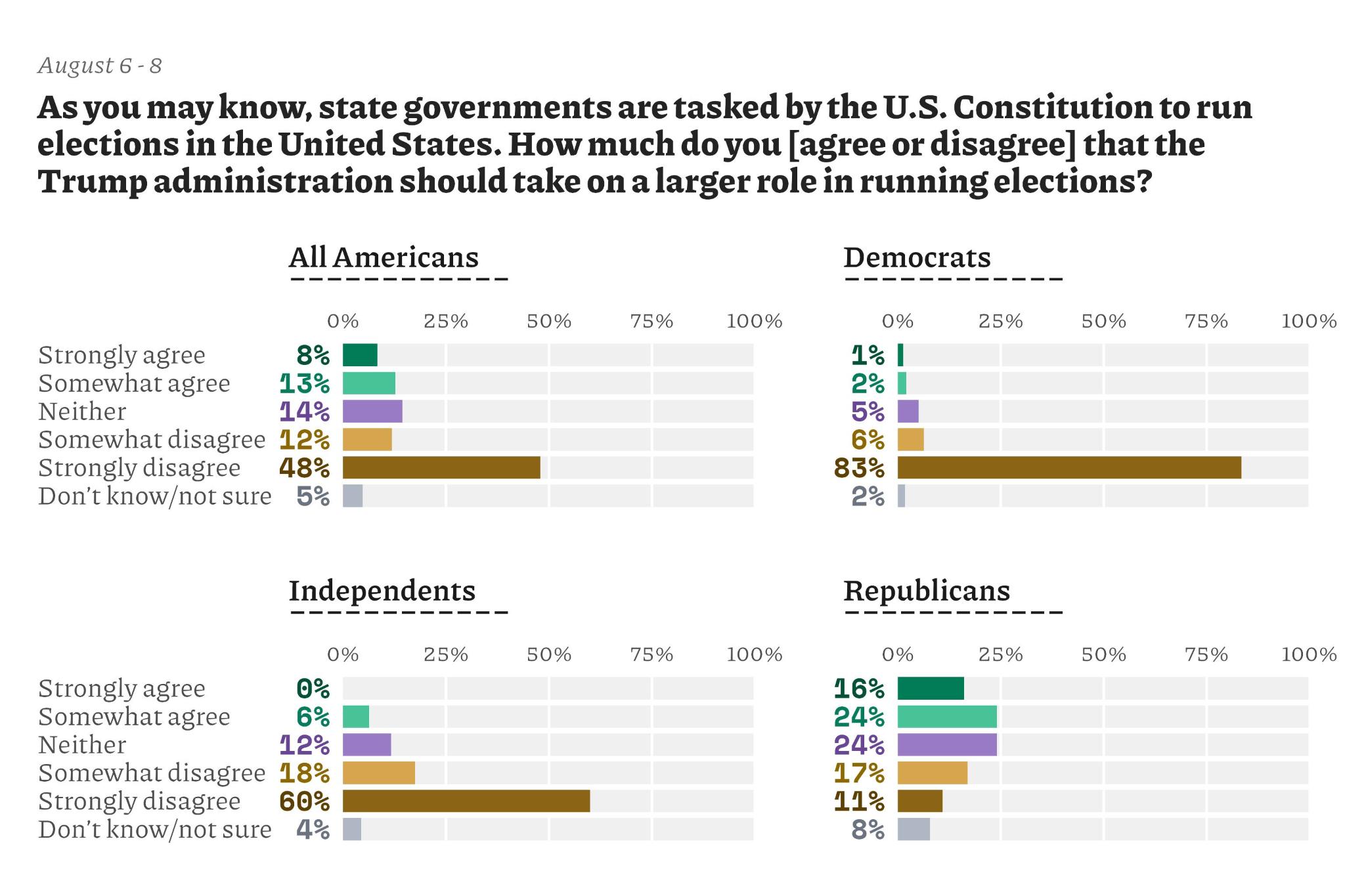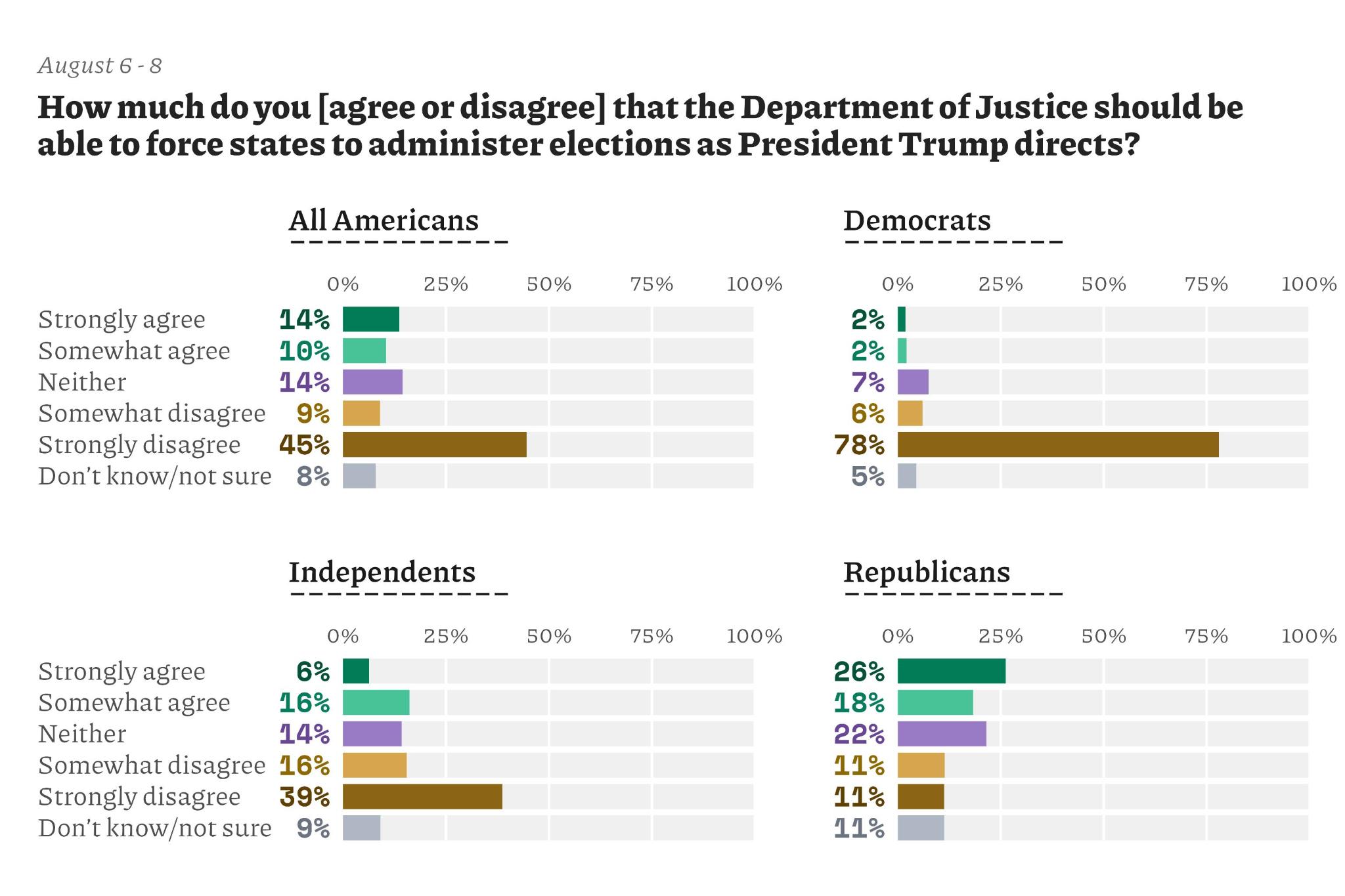Survey: Americans Don’t Want Trump’s Interference in Elections
In This Resource
President Trump wants a bigger role in running American elections. But Americans don’t feel the same way.
The U.S. Constitution tasks state governments with running elections. Despite this, the president has attempted to use the power of the executive branch to reshape how elections are administered throughout the country.
From an executive order that tried to change national voter registration procedures to include a documentary proof of citizenship requirement to directing the U.S. Department of Justice to probe state election offices, Trump has repeatedly overstepped his authority on elections. In August, he threatened to sign another executive order that would ban voting by mail and voting machines.
The American people disapprove of this overreach.
According to recent polling from States United, a large majority of Americans disagree that the Trump administration should take a larger role in running elections. Americans also said they disagreed that the Justice Department should be able to force states to administer elections as the president directs.
In partnership with YouGov, the survey was conducted among 1,030 registered voters between Aug. 6 and 8.
- Six in 10 Americans disagree that the Trump administration should take a larger role in running elections. A substantial number of Democrats and independents disagreed, while opinion among Republicans is more mixed.
- Most Americans also disagreed that the Justice Department should be able to force states into administering elections as Trump directs. Most independents and a significant majority of Democrats align on this question. Less than half of Republicans agree with Justice Department intervention in elections.
When asked how much they agree or disagree that the Trump administration should take on a larger role in running elections, 60% of Americans said they either somewhat or strongly disagreed. Only 21% of Americans said they believe the administration should take on a larger role—a sentiment felt mostly by Republicans. Still, less than half of Republicans (40%) agreed. Democrats and independents overwhelmingly disagree with a larger role in elections from the administration.

Americans also disagreed that the Justice Department should be able to force states to administer elections in ways the president directs. Of those Americans surveyed, 54% said they somewhat or strongly disagreed with this sentiment. Numbers vary by partisan affiliation: 84% of Democrats and 55% of independents disagreed with Justice Department intervention. Less than half (44%) of Republicans agreed that the Justice Department should be able to direct states’ election administration.

These data are taken from a States United survey based on 1,030 interviews conducted on the internet of registered voters. Participants were drawn from YouGov’s online panel and were interviewed from August 6 – 8, 2025. Respondents were selected to be representative of American adults. Responses were additionally weighted to match population characteristics with respect to gender, age, race/ethnicity, education of registered voters, and U.S. Census region based on voter registration lists, the U.S. Census American Community Survey, and the U.S. Census Current Population Survey, as well as 2020 presidential vote. The margin of error for this survey is approximately ± 2.8 percentage points, though it is larger for the analysis of partisan subgroups described above. Therefore, sample estimates should differ from their expected value by less than the margin of error in 95% of all samples. This figure does not reflect non-sampling errors, including potential selection bias in panel participation or measurement error.
In keeping with best research practices, we classify independent voters who reported “leaning” toward either the Democratic or Republican parties as partisans. Therefore, we define “independents” as those respondents who professed no partisan attachments whatsoever.